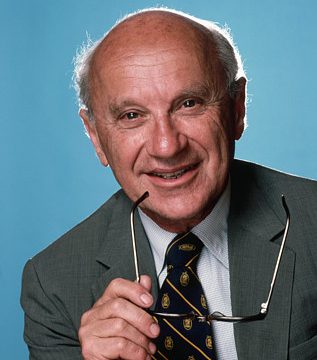Happy birthday to that great defender of capitalism, Milton Friedman

BIRTHDAY BOY: Milton Friedman was one of the most famous advocates for the power and merits of the free market.
By Rob Nikolewski │ New Mexico Watchdog
Harry Truman once complained he wanted to find a one-handed economist because he was tired of asking a direct question of those on his economic team, only to have them say, “One on the hand … but on the other hand.”
If there was one hand that noted economist Milton Friedman favored, it was the “invisible hand” of the free market.
Thursday marks the 102nd anniversary of Friedman’s birth. He died in 2006, but during his long career Friedman won over admirers (and drove his left-of-center critics crazy) with his direct and eloquent defense of capitalism.
Friedman won the Nobel Prize in economics in 1976, but perhaps his greatest influence was nudging people — who otherwise may have had little interest in the “dismal science” of economics — to look at the world through a new set of eyes and question some of the assumptions they’d been told.
Here’s a look at some of Friedman’s most notable quotes:
“The most important single central fact about a free market is that no exchange takes place unless both parties benefit.”
“Most economic fallacies derive from the tendency to assume that there is a fixed pie, that one party can gain only at the expense of another.”
“A society that puts equality before freedom will get neither. A society that puts freedom before equality will get a high degree of both.”
“When everybody owns something, nobody owns it, and nobody has a direct interest in maintaining or improving its condition. That is why buildings in the Soviet Union — like public housing in the United States — look decrepit within a year or two of their construction …”
“Concentrated power is not rendered harmless by the good intentions of those who create it.”
“One of the great mistakes is to judge policies and programs by their intentions rather than their results.”
“If you put the federal government in charge of the Sahara Desert, in five years there’d be a shortage of sand.”
On his opposition to the ”war on drugs”: “The government has no more right to tell me what goes into my mouth than it has to tell me what comes out of my mouth.”
And here’s an exchange Friedman had with Phil Donahue in 1979, when the talk show host criticized the free enterprise system:
Donahue: But it seems to reward not virtue as much as ability to manipulate the system.
Friedman: And what does reward virtue? Do you think the communist commissar rewards virtue? Do you think Hitler rewards virtue? Do you think American presidents reward virtue? Do they choose their appointees on the basis of the virtue of the people appointed or on the basis of their political clout? Is it really true that political self-interest is nobler somehow than economic self-interest? You know, I think you’re taking a lot of things for granted. Just tell me where in the world you find these angels who are going to organize society for us.
Finally, one of Friedman’s most famous examples of the power of the market came when he simply held up a pencil:
Contact Rob Nikolewski at rnikolewski@watchdog.org and follow him on Twitter @robnikolewski







